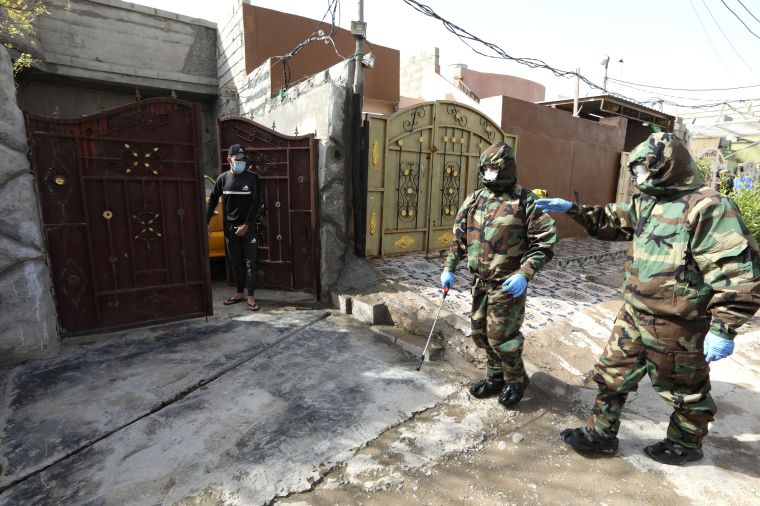On June 9, 2020, Iraqi security forces in the northeastern Iraqi city of Kirkuk prevented Azad Shakur, a reporter for the Kurdish Iraqi broadcaster Gali Kurdistan, and Diyar Mohammed, a reporter for the Kurdish Iraqi broadcaster NRT, from reaching their workplaces and threatened to break the camera of Hazhar Rasheed, a reporter for Shafaq News Agency, while he was taking pictures of the new security fences that have been installed in Kirkuk’s Al-Rahima neighborhood, according to a statement by the Iraqi press freedom group the Press Freedom Advocacy Association in Iraq and the three journalists, who spoke to CPJ via messaging app on June 12 and 13.
Mohammed told CPJ that he was on his way to work when he came across a checkpoint run by the police’s Emergency Forces.
“The security officers at the checkpoint told me that only vehicles belonging to security forces were allowed to pass through. I showed them by press card, but they didn’t care and were disrespectful and stopped me for 35 minutes, so I missed my live broadcast for a morning show,” Mohammed said.
According to Shakur, the police officers running the checkpoint where he was stopped explicitly told him that journalists were not allowed to use those roads.
“We tried to explain to them that the COVID-19 restrictions don’t apply to journalists and tried hard to convince them to let us go. It wasn’t until a number of journalists complained that the authorities in Baghdad issued a decision to allow us to go to our workplace,” Shakur told CPJ.
Rasheed told CPJ that he was taking pictures of new security fences that the police had set up along the roads in Kirkuk’s Al-Rahima neighborhood when a police officer approached and ordered him to delete the pictures.
“I told him I was a journalist and had a right to take those pictures and I had no hidden intentions. I respectfully asked him why I should delete them and he replied by threatening to break my camera into pieces if I didn’t comply right then and there. I felt I had no choice but to comply,” Rasheed said.
All three reporters told CPJ that journalists working in Kirkuk are encountering an increasing number of difficulties, ranging from the presence of several security forces that don’t recognize one another’s authority to the requirement that journalists request permission from the governor’s office to interview any local authority.
The Kirkuk police directorate did not immediately reply to CPJ’s request for comment sent via social media.
In a separate incident, Kurdish Iraqi police arrested Alan Sahebqran, editor-in-chief of the local news website Kurdistan Gift Network (KGN), and held him for several hours in Erbil on June 11, 2020, after he was sued for defamation by the former director of Erbil’s wheat silo, according to Sahebqran, who spoke to CPJ via messaging app on June 11 and 12, the journalist’s employer, and Rahman Gharib, director of the local press freedom group Metro Center for Journalists’ Rights and Advocacy.
Sahebqran told CPJ that he heard that there was an arrest warrant pending against him and went to the police station to confirm the veracity of the rumors.
“The police officers at the station immediately told me that I was under arrest and allowed me to make a phone call to inform my family about my detention. Several hours later, I was released on bail of 2 million Iraqi dinars ($1,680),” Sahebqran said.
He said he was arrested because the director of Erbil’s wheat silo had sued him for defamation for a Facebook live broadcast in which he discussed documents that showed alleged involvement in corruption and embezzlement, including practices like replacing high quality wheat with low quality. The director of the silo was fired, according to Sahebqran and Gharib.
According to Sahebqran, charges against him are still pending, but no hearing had been scheduled by mid-June.
